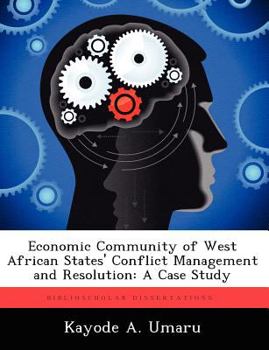Economic Community of West African States' Conflict Management and Resolution: A Case Study
This thesis examines the problems of conflict management and resolution in West Africa. The prevalence of conflicts has risen since the last decade and though the Economic Community of West African States has been involved in the management of these conflicts, the efforts were marred by a number of problems.
These problems were examined by looking into the effects of the causes of conflicts and the historical background of West African nations. The economy and political culture, organizational structure for security mechanism and mandate for intervention were appraised as methodology parameters in the ECOWAS management of the Liberian and Sierra Leonean conflict case studies. Bad economic and political management, the Anglo-francophone dichotomy and absence of an institutional conflict management mechanism were identified as the problems of conflict management and resolution in West Africa. Bad economic and political management were judged to be the most critical of the problems. This thesis concluded that there is no level of efficiency in the management of conflicts that would eliminate the causes of conflicts and therefore recommended that more ECOWAS efforts should be directed at enhancing economic development of its members and the economic integration of the subregion. The thesis further recommended future studies in area of the economic development and integration, devoid of Anglo-francophone dichotomy for the West African subregion.This work has been selected by scholars as being culturally important, and is part of the knowledge base of civilization as we know it. This work was reproduced from the original artifact, and remains as true to the original work as possible. Therefore, you will see the original copyright references, library stamps (as most of these works have been housed in our most important libraries around the world), and other notations in the work.
This work is in the public domain in the United States of America, and possibly other nations. Within the United States, you may freely copy and distribute this work, as no entity (individual or corporate) has a copyright on the body of the work.
As a reproduction of a historical artifact, this work may contain missing or blurred pages, poor pictures, errant marks, etc. Scholars believe, and we concur, that this work is important enough to be preserved, reproduced, and made generally available to the public. We appreciate your support of the preservation process, and thank you for being an important part of keeping this knowledge alive and relevant.





